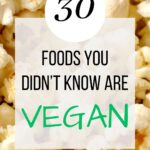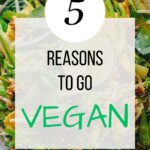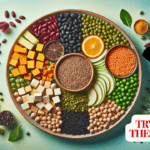Veganism and vegetarianism are both dietary and lifestyle choices that involve abstaining from the use of animal products. While there are some similarities between the two, there are also some key differences.
In this post, we will look at the differences between veganism and vegetarianism.
Vegan vs Vegetarian
Veganism is a stricter form of vegetarianism in which individuals do not consume or use any animal products at all. This includes not only meat, but also eggs, dairy products, honey, and any other animal-derived ingredients. In addition to abstaining from animal products in their diet, vegans also try to avoid using animal-derived products in other areas of their life, such as clothing, cosmetics, and household items.
Vegetarianism, on the other hand, involves abstaining from meat, but may allow for the consumption of other animal products like eggs and dairy.
There are several different types of vegetarianism, including:
- Lacto-vegetarianism: This type of vegetarianism allows for the consumption of dairy products, but not eggs.
- Ovo-vegetarianism: This type of vegetarianism allows for the consumption of eggs, but not dairy products.
- Lacto-ovo vegetarianism: This is the most common type of vegetarianism, and allows for the consumption of both eggs and dairy products.
One of the main reasons people choose to follow a vegan or vegetarian diet is for ethical reasons. Many vegans and vegetarians believe that it is wrong to exploit and harm animals for food, clothing, or other purposes. They may also be motivated by concerns about the environmental impact of animal agriculture, as well as health reasons.
There are also some potential health benefits associated with vegan and vegetarian diets. Plant-based diets have been shown to be linked to a lower risk of certain chronic diseases, such as heart disease, type 2 diabetes, and certain types of cancer. However, it is important to note that it is possible to follow a unhealthy vegan or vegetarian diet, so it is important to ensure that you are getting all the nutrients your body needs.
One potential concern with veganism is the risk of nutrient deficiencies. Some nutrients that may be of particular concern for vegans include vitamin B12, iron, and omega-3 fatty acids. Vitamin B12 is found almost exclusively in animal products, so it is important for vegans to include fortified foods or supplements in their diet to meet their needs.
Iron is also more easily absorbed from animal sources, so vegans may need to make an effort to include iron-rich plant foods in their diet, such as legumes, nuts, and seeds. Omega-3 fatty acids are also found mostly in animal products, but can also be obtained from algae-based supplements.
Vegetarians may also need to pay attention to their nutrient intake, but may have an easier time meeting their needs because they are able to include animal products in their diet. However, it is still important for vegetarians to make sure they are getting a variety of nutrients from their diet.
To sum up, veganism and vegetarianism are both dietary and lifestyle choices that involve abstaining from the use of animal products. While there are some similarities between the two, there are also some key differences.
Veganism is a stricter form of vegetarianism that involves not consuming or using any animal products at all, while vegetarianism allows for the consumption of certain animal products like eggs and dairy. Both veganism and vegetarianism can have potential health benefits, but it is important to ensure that you are getting all the nutrients your body needs.
Is It Healthier to Be Vegan or Vegetarian?
It is difficult to say definitively whether a vegan or vegetarian diet is healthier, as this can depend on a variety of factors such as an individual’s age, sex, activity level, and overall health status. However, research has shown that plant-based diets, including both vegan and vegetarian diets, may be associated with a lower risk of certain chronic diseases, such as heart disease, type 2 diabetes, and certain types of cancer.
That being said, it is important to note that it is possible to follow an unhealthy vegan or vegetarian diet. As with any diet, it is important to ensure that you are getting all the nutrients your body needs, including protein, fiber, vitamins, and minerals. If you are considering following a vegan or vegetarian diet, it is a good idea to speak with a healthcare professional or a registered dietitian to ensure that you are getting all the nutrients your body needs.
One potential concern with veganism is the risk of nutrient deficiencies. Some nutrients that may be of particular concern for vegans include vitamin B12, iron, and omega-3 fatty acids. Vitamin B12 is found almost exclusively in animal products, so it is important for vegans to include fortified foods or supplements in their diet to meet their needs. Iron is also more easily absorbed from animal sources, so vegans may need to make an effort to include iron-rich plant foods in their diet, such as legumes, nuts, and seeds. Omega-3 fatty acids are also found mostly in animal products, but can also be obtained from algae-based supplements.
Vegetarians may also need to pay attention to their nutrient intake, but may have an easier time meeting their needs because they are able to include animal products in their diet. However, it is still important for vegetarians to make sure they are getting a variety of nutrients from their diet.
In summary, while a vegan or vegetarian diet may be associated with some potential health benefits, it is important to ensure that you are getting all the nutrients your body needs. If you are considering following a vegan or vegetarian diet, it is a good idea to speak with a healthcare professional or a registered dietitian to ensure that you are doing so in a healthy and balanced way.
Lance has been passionate about the plant-based diet and we have been following a whole food plant-based diet for over 5 years. We focus on health, natural healing, weight management, animal rights, and the health of the planet and environment by focusing on whole plant-based foods and sustainable practices.
Learn more at the About Me page and follow on social media at the links below.






